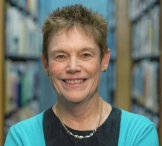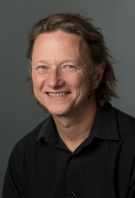2017 Keynote Speakers
The keynote talks will be streamed live at https://bcteal.wordpress.com/2017/10/04/atesl-bcteal-ets-2017/.
Friday, October 20th

Dr. Bonny Norton
Identity, Investment, and English Language Learning in an Unequal Digital World
Because of advancements in digital technology, there are new relations of power at micro and macro levels that impact identity, investment, and language learning. Drawing on recent research with English language learners in both wealthy and poorly resourced global communities, I discuss the ways in which a more comprehensive model of investment (Darvin & Norton, 2015) can help inform English language teaching in classrooms and communities.
Bonny Norton is a Professor and Distinguished University Scholar in the Department of Language and Literacy Education, University of British Columbia. Her primary research interests are identity and language learning, critical literacy, and international development. Recent publications include a 2017 special issue of the Modern Language Journal on language teacher identity, and a 2013 second edition of Identity and Language Learning (Multilingual Matters). A Fellow of the Royal Society of Canada and the American Educational Research Association, she was the 2010 inaugural recipient of the Senior Research Leadership Award of AERA’s Second Language Research SIG and co-recipient of the 2015 TESOL Distinguished Research Award. Her website is: http://www.educ.ubc.ca/faculty/norton/

Dr. Darren Lund
Becoming a Better Advocate for All Learners: Infusing Social Justice in our Practice
Educators and other professionals are correctly being encouraged to attend to diversity issues in their practice. Darren’s talk will offer a timely reminder that this work of attending to difference is not simply about “managing diversity” or pursing harmony with students. Bringing about social and institutional changes toward inclusion and social justice requires thoughtful advocacy and even some professional risk. Darren’s talk will offer specific insights from his three decades of work on social justice activism and human rights; he will address notions of privilege, and the need to attend to our own complex identities in this work. This presentation will encourage and prepare attendees to engage in meaningful efforts to foster social justice through becoming better advocates for all of our students.
Darren E. Lund, Ph.D., is a professor in the Werklund School of Education at the University of Calgary, where his research examines social justice activism in schools, communities, and professional education programs. Darren was a high school teacher for 16 years, and formed the award-winning Students and Teachers Opposing Prejudice (STOP) program. Darren has published over 300 articles, books, and book chapters, and is creator of the popular on-line Diversity Toolkit project. Darren co-founded the Service-Learning Program for Pre-Service Teachers, winner of the national 2012 Award of Excellence in Education from the Canadian Race Relations Foundation. Darren has been recognized with a number of awards and honours, including the Alberta Teachers’ Association’s 2015 Educational Research Award, the inaugural 2013 Alberta Hate Crimes Awareness Award, the 2012 Scholar-Activist Award from the American Educational Research Association (Critical Educators for Social Justice), and he was named a Reader’s Digest National Leader in Education.
Saturday, October 21st

Dr. Greg Kessler
Preparing Teachers for the Future: Designing Instruction with Automated and Intelligent Tools
The presenter will share his thoughts about the changing nature of language teaching. He will focus on the importance of designing instructional experiences in a thoughtful manner. He will share a number of recent developments related to language and technology, including automated assessment tools, speech and gesture control interfaces, and a variety of forms of natural language processing. Some of the tools and resources associated with these developments have found their way into language learning while others certainly will in the near future. Many of these developments have the potential to dramatically alter learning. They may also threaten or intimidate language teachers and learners. The presenter will share thoughts about the need to embrace these developments as we move toward a new era of language learning: One in which these intelligent assistants and resources may take precedence over classroom instruction.
Dr. Greg Kessler is an associate professor in instructional technology at Ohio University. His research addresses instructional innovation, teacher preparation, technology use, language use, language learning and associated human behavior. He has published and presented widely. He has had the great privilege to speak about technology and language around the world.